Switch to the mobile version of this page.
Vermont's Independent Voice
- News
- Arts+Culture
- Home+Design
- Food
- Cannabis
- Music
- On Screen
- Events
- Jobs
- Obituaries
- Classifieds
- Personals
Browse News
Departments
-
Education

Scott Official Pushes Back on Former State…
-
News

Burlington Budget Deficit Balloons to $13.1 Million
-
Education

Senate Committee Votes 3-2 to Recommend Saunders…
- Court Rejects Roxbury's Request to Block School Budget Vote Education 0
- Norwich University Names New President Education 0
- Media Note: Mitch Wertlieb Named Host of 'Vermont This Week' Health Care 0
Browse Arts + Culture
View All
local resources
Browse Food + Drink
View All
Browse Cannabis
View All
-
Culture

'Cannasations' Podcaster Kris Brown Aims to 'Humanize'…
-
True 802

A Burlington Cannabis Shop Plans to Host…
-
Business

Judge Tosses Burlington Cannabiz Owner's Lawsuit
-
Health + Fitness

Vermont's Cannabis Nurse Hotline Answers Health Questions…
-
Business

Waterbury Couple Buy Rare Vermont Cannabis License
Browse Music
View All
Browse On Screen
Browse Events
Browse Classifieds
Browse Personals
-

If you're looking for "I Spys," dating or LTRs, this is your scene.
View Profiles
Special Reports
Pubs+More
After Four Years of Turmoil and Transition, the Flynn Enters a New Era
Published June 1, 2022 at 10:00 a.m.
This story was updated at 2:19 p.m. on June 2, 2022.
The press conference for the 2022 Burlington Discover Jazz Festival opened on a late April afternoon in City Hall Park. Framed by budding trees, local arts administrators, sponsors and city officials offered earnest remarks and corny jokes. A local high school jazz band played an endearing version of "Misty." Someone heckled the mayor.
In other words: It was just like old times. Mostly.
More than two years into a global pandemic, nothing is coming back precisely the same as it used to be. The 39-year-old jazz festival is finding its feet once again, adjusting its programming to the circumstances of difficult bookings and uncertain audiences. It still has star power in the likes of blues musician Bobby Rush and funk pioneer George Clinton — just not quite as much of it.
The festival's tentative recovery might serve as a metaphor for its primary sponsor, the Flynn. Burlington's preeminent cultural institution is emerging from two years of oft-darkened halls and, less obvious to the theatergoing public, four years of drama behind the scenes. The organization is on its third executive director since 2018, following a 37-year span in which it had just two. A staff mutiny preceded the departure of one of those leaders.
Then, in the 13 months between March 2021 and April 2022, a dozen key employees in administrative and managerial positions willingly quit the Flynn, including several senior staff. Among them was artistic director Steve MacQueen, who left under circumstances that required him to sign a nondisclosure agreement.
Financially, the Flynn has taken hits, as well, largely due to the pandemic. With its Main Stage and Flynn Space theaters closed and educational programming shuttered for the first 18 months of COVID-19, earned revenue plummeted. From roughly $7 million a year, the performing arts center's annual income dropped to $3 million in 2020. The 2021 operating budget was adjusted to $3.5 million.
That budget has rebounded to $6.5 million this year, and while precise revenue figures aren't yet available, the nonprofit expects to end the fiscal year in the black. But the Flynn still lacks an artistic director and a head of marketing, and it has only recently begun filling many other vacant positions.
Programming and marketing have been largely outsourced to companies in Pennsylvania and North Carolina. For the first time, the Flynn's big announcement about its upcoming season did not highlight a mix of genres but instead trumpeted five well-known Broadway musicals guaranteed to fill seats and coffers, if not expand artistic horizons.
There are signs of hope, though, including the jazz festival lineup. While programming is still nowhere near pre-pandemic levels, little by little the Flynn is starting to resemble itself again, at least in front of the big red curtain.
In late October, the Flynn held a reopening celebration highlighted by Afro-pop singer Angélique Kidjo — the first of 25 performances at the theater in 2021. The gala also included performances by some new members of the Flynn team: creative chair Daniel Bernard Roumain and Flynn fellows Dwight Ritcher and Nicole Nelson of local blues rock band Dwight + Nicole.
In the past few weeks, icons ranging from violin virtuoso Itzhak Perlman to singers Bonnie Raitt and Diana Krall to pop satirist "Weird Al" Yankovic have performed at the Flynn to eager crowds. And with a new education director on board, classes and summer camps are ramping back up, too.
It adds up to high expectations for Jay Wahl, the executive director the Flynn board hired early last year, choosing him unanimously from a field of more than 100 candidates. Formerly the producing artistic director at the Kimmel Center for the Performing Arts in Philadelphia, Wahl has a track record of creative programming, including performances that reach beyond the theater walls and into public spaces.
"We were looking for someone who has vision, and he has vision," longtime Flynn board member Staige Davis said.
"It's been an amazing year," Wahl said. "It's been hard," he conceded, "but hard isn't bad. Hard means you care; hard means the work is important."
Wahl will need every bit of his vision and creativity as he leads the Flynn into a new and uncertain era. Significant challenges remain, from rebuilding the staff to revamping both the Flynn's artistic and educational programming, to assessing and adapting to the fickle comfort levels of theatergoers hesitant to return as the stubborn pandemic hangs on.
At the jazz festival press conference, Burlington Mayor Miro Weinberger turned philosophical as he addressed the crowd.
"We shouldn't take these things for granted," he said, referring to the jazz festival and, more broadly, the performing arts. He could just as easily have been talking about the Flynn. "If the last two years have taught us anything," he went on, "it's that there's a lot that's more fragile than we think it is."
How to Succeed in Business
On June 26, 2018, the Flynn threw a blowout celebration for outgoing executive director John Killacky. The old art deco house was packed. The evening was almost more of a spectacle than a retirement party, with performances by an array of local artists, including a Cher impersonator.
It was the kind of party thrown by a stable, successful arts organization confident of its future. And Flynn supporters had reasons for that confidence. Since its transformation from decaying vaudeville-hall-turned-movie-house in the early 1980s, the theater had grown into a cultural powerhouse with a $10 million endowment, a $7 million annual budget, a 350-performance season, and a robust education and student matinee program.
In its first 37 years, the Flynn had had only two executive directors: Andrea Rogers, widely credited with building the organization over 29 years; and Killacky, now a state representative, whose eight-year tenure grew the endowment, expanded the Flynn's connections to other arts groups, and made the theater known for its commitment to accessibility and inclusion. He had also expanded Flynn programs created under Rogers that provided discounted tickets to social services agencies and schools, arranging for 38,000 schoolchildren to attend Flynn shows every year, more than 7,000 of those for free. The theater generated $30,000 a year for scholarships to performing arts classes and camps.
The Flynn had enjoyed stability with its artistic programmers, too. Its first general manager, Tony Micocci, whose responsibilities included programing, served five years under Rogers. His replacement, Tom Dunn, lasted only a year. But each of the subsequent artistic directors, Philip Bither, Arnie Malina and MacQueen, served for at least a decade.
Each built on his predecessors' work, balancing bankable shows that kept the theater financially solvent with more challenging fare that aligned with the Flynn's stated mission to "encourage the enjoyment, understanding, and development of the performing arts in Vermont through diverse and engaging artistic experiences."
As former jazz festival managing director Chelsea Lafayette put it, "The Flynn really does present avant-garde performing arts, which is really rare in a market this size."
From profits to programming, the Flynn had never been on surer footing, inside or out, as Killacky passed the torch to his successor, Anna Marie Gewirtz, that night in June 2018.
Madeline Bell, then programming manager, recalled a moment of reflection with her colleagues at Killacky's retirement party.
"We looked around and we were like, This is a really strong team of people with a wide array of skills — people who love this work," she said. "And we were ready for change. We could see the groundbreaking work that happened under John, especially with the accessibility work, and we were ready to grow. We were ready to do more."
Les Misérables
Sixteen months later, the Flynn's board of directors had a mutiny on its hands.
In a November 2019 letter to the board obtained by Seven Days, more than 20 members of the Flynn staff expressed serious concerns about leadership. They asserted that during her tenure, Gewirtz had "responded to honest and respectful feedback with retaliation and threats." Following what they termed the "sudden firing" of chief financial officer Andrea Bergeron, employees no longer felt "safe or secure in our current working environment," they wrote.
"We ask for your prompt assistance in resolving this conflict internally," the letter continued. "We have asked the Executive Director, and now we ask the Board, to please bring in an outside professional to assist with conflict mediation."
The letter capped a year of dissension within the Flynn that was largely invisible to theatergoers. Speaking on the condition of anonymity, a number of former employees described an oppressive and unsupportive working environment.
"It was a constant state of conflict," said Ryan Addario, who was one of half a dozen teaching artists who left the organization in the summer of 2019 after the resignation of Amy Riley, the producing artistic director of Flynn Youth Theater. "The upstairs-downstairs dynamic there is pronounced," Addario said.
"I'm surprised we didn't lose more people," said Lafayette, the former Burlington Discover Jazz Festival director, who departed in 2021.
The November 2019 letter cited a performance evaluation of Gewirtz conducted in June 2019. It was a "360 review," which means that both the board's executive committee and Flynn employees working under Gewirtz were asked to assess her performance. Sources familiar with the report said the results from the Flynn staff were largely negative.
"At that time we were told our feedback would be taken seriously," the letter read. "Currently we do not know who has received or reviewed this feedback and what next steps will be taken based on the concerns raised by the staff."
Flynn board chair Paul Ode confirmed that the letter was sent to the board. He said that, as a result, consultants were brought in to assist with communication between the board and staff. He added that 360 reviews are part of the Flynn's performance evaluation process.
Gewirtz officially resigned on January 17, 2020, after 18 months on the job. She cited "family reasons" in a press statement to explain her abrupt departure. She is now the director of major gifts at the Grossman School of Business at the University of Vermont. Reached for comment, she said she wasn't aware of the letter sent by staff to the board about her, and said the allegations it contains are false.
Addressing reports of the widespread staff discontent, she said, "When you have a payroll of [hundreds of] individuals, many of whom have been there a long time, and there's any kind of change going on within the organization, there's bound to be some individuals who are not happy sometimes.
"I think we had a pretty incredible team, and we accomplished a lot in a pretty short time," Gewirtz continued, citing expansions in community programming, record-breaking ticket sales and strong fundraising as highlights of her tenure. She also rebranded the Flynn Center for the Performing Arts as "the Flynn." "I certainly learned a lot working there," she said.
"We wanted it to be successful," Bell said of Gewirtz's tenure. "But we could see coming in that there was a disconnect ... And it became evident very quickly that it was not the right fit, and it affected morale quite deeply."
But as that old showbiz saw goes: The show must go on. And it did. The fall 2019 season was hailed as a success, headlined by Main Stage performances by singer Elvis Costello, comedian Nick Kroll and a production of Swan Lake, along with robust avant-garde programming at the Flynn Space. However, cracks had begun to show in the façade.
The Tempest
Charlie Smith, a former KeyBank vice president, stepped in as interim executive director on January 31, 2020. Having served as secretary of the Vermont Agency on Human Services as well as an interim director at Vermont PBS, Vermont Symphony Orchestra and Vermont Energy Investment Corporation, he had a reputation as an administrative handyman, the guy you call when your organization springs a leak.
His role at the Flynn, as board member Davis put it at the time, was "not a visionary job" but that of a caretaker, someone to keep the organization afloat until a new leader could be found. Smith's first act was going through the Flynn department by department and interviewing staff about their jobs and experiences over the previous 18 months.
"I think we were all hopeful," Bell said. "Charlie was also rooted in the community. And he understood that his role was not to reinvent the wheel but to really figure out how he could help strengthen us in this transition."
But no amount of strengthening could protect the Flynn from the disaster that loomed. Along with nearly everything else in Vermont, the Flynn closed on Friday, March 13, 2020, just six weeks after he took over.
"I think it was probably before he even got to see a show," Bell noted. Between the sudden leadership transition and COVID-19, she continued, "It was a perfect storm."
The Flynn's initial strategy, like many organizations' in the early days of the pandemic, was to batten down the hatches. One week after the shutdown, 12 full-time employees were laid off or furloughed as the remainder of the Flynn's 2019-20 season was canceled, along with classes and camps. The box office, which had long sold tickets to regional events in addition to Flynn fare as an additional revenue stream, was shuttered. With no artistic or educational programming to produce or sell, a long list of part-timers, teaching artists and independent contractors was cut loose.
"There were no shows, so there was nothing for people to do," Davis, the board member, said.
After holding out faint hope that the pandemic might go away in a couple of months — remember those days? — in mid-April the Flynn canceled the 2020 Burlington Discover Jazz Festival. It was replaced that year by a streaming version, the Burlington ReDiscover Jazz Festival, largely composed of recordings of previous jazz fest sets — about the only streaming programming the Flynn attempted during the pandemic.
"It was really scary," Flynn board chair Ode said.
"We were in survival mode," Davis said.
It's a good thing they had the corporate equivalent of a survivalist at the helm in Smith.
"In some ways, we lucked out," Lafayette said. "We needed a line to the banks, and the board hired a former banker."
Assuming the Flynn would run a deficit, Smith negotiated a $5 million line of credit. The organization didn't end up using it, Davis explained, thanks to "extremely generous" donors, nearly $1 million in since-forgiven federal Paycheck Protection Program loans, and emergency grants — including a $2.9 million federal Save Our Stages grant last year.
However, none of those lifelines was in clear view at the start of the pandemic. At its nadir, the Flynn's staff dropped to a total of 13 employees. For context, according to tax filings, in 2019 the organization employed 278 people, including full-time salaried and hourly employees, part-timers and production crew.
That mass exit, combined with the events that preceded the pandemic, took a real toll on staff.
"We were all exhausted before COVID hit," Lafayette said. "And once it did, it just became really tough."
Come From Away
White smoke didn't billow from the chimney at the Flynn when Jay Wahl was announced as the Flynn's next executive director in December 2020. But there was a palpable, if not quite papal, sense of relief and optimism around his hiring.
"We're delighted," an enthusiastic Davis told Seven Days shortly after Wahl was announced.
Wahl had spent the previous 11 years as the producing artistic director at the second-largest performing arts center in the country. In Philly, he'd developed a reputation as an imaginative and ambitious programmer whose forte was bringing art to the audience, rather than relying on audiences to come to the theater. He especially excelled at producing work in public spaces and served as artistic director of citywide biennial event the Philadelphia International Festival of the Arts, which brought music, dance and theater productions to neighborhoods across the city.
"We felt that his experience and his creativity were far and above the rest of the candidates," Davis said.
The admiration was mutual.
"These are smart, deep-hearted, brave people," Wahl said of the Flynn staff in a January 2021 interview with Seven Days. "So I think the goal is to jump in and be part of that and help everybody feel proud of that work."
Addressing the recent turnover at the top of the organization, he said, "I think leadership at the Flynn has been very strong for a very long time. The executive director is an important person, perhaps, but one of a big team. And the team has been very stable and very loyal. I feel like I'm joining a stable organization."
Perhaps Wahl really did feel that way, or maybe he just hadn't been around long enough to know any better. But only the most wide-eyed optimist could look at all the Flynn had endured in the previous three years and see stability. And the job would get harder before it got any easier.
In January 2021, eight previously furloughed staffers rejoined the 13, and the Flynn counted a total of 21 employees — but only briefly, as it turned out. Another transition to a new executive with a new style finished what the pandemic began: wearing out employees from conflict and crisis to the point where they opted to leave.
Lafayette, who had applied for the executive director position, said she fully supported Wahl and advocated for him in the final round of hiring. But she left that March, citing burnout — the first of 15 Flynn staffers who would quit the organization over the next 13 months. The exodus included longtime senior staff members such as director of marketing and communications Kevin Titterton, director of production Jon Bearclaw Hart, artistic director MacQueen, and Bell, who was associate director of programming when she departed in February 2022.
People in key management positions also left, including manager of grants and corporate giving Amy Kirschner, membership coordinator Jenna Giguere, class and camp manager Sarah Caliendo, marketing production manager Tracey Dengler, and comptroller Ann Reading. Three box office agents also left.
MacQueen, now the executive artistic director of Circus Smirkus, declined to discuss his departure, citing his nondisclosure agreement. Asked to describe his relationship with the former artistic director, Wahl replied simply, "Good," and denied that the two clashed during their time together.
Davis, the board member, was a bit more forthcoming. He praised MacQueen's creativity and risk-taking. "He brought things to the Flynn I don't think we would have seen otherwise," he said. But Davis also acknowledged that because of Wahl's programming background, he and MacQueen had overlapping skill sets. "So there was some redundancy there," he said.
The Flynn is still advertising for a new marketing director, whose expanded duties will also include oversight of the box office, which has reopened but no longer sells tickets to non-Flynn events. In the meantime, Wahl has outsourced marketing to a Philadelphia firm called Slice Communications.
The theater is also relying on outside help with programming while it searches for a new artistic director. According to Wahl, who said he is taking on some programming responsibilities in the interim — the Broadway shows were a collaboration with MacQueen, he noted — a North Carolina firm called Midwood Entertainment is helping to fill gaps in the calendar.
Certainly, some of the Flynn's staffing woes can be attributed to pandemic burnout, or the so-called Great Resignation. But it's fair to wonder whether Wahl's lack of previous executive director experience might have exacerbated, inadvertently or otherwise, what was a fragile situation among the staff he inherited.
Kyla Waldron worked at the Flynn for five years in a variety of capacities until she left the organization in March as the associate director of produced events. She recalled an early meeting with Wahl in which she encouraged him to learn more about what had happened before the pandemic.
"I told him that I wanted him to succeed — and I still do. But I told him that if we were dating, we as Flynn employees are coming with a lot of baggage and that it would behoove him to learn about what we went through and learn and grow with us in that way," Waldron said. "And he immediately shut that down. He said, 'That's the past. We're gonna move through it.'
"My thing is," she went on, "why is he the only one who gets to do that?"
Into the Woods
One answer might simply be that Wahl has had little choice but to press on.
If you want to see whether someone has what it takes to last in Vermont, drop them here in depths of winter. That's when Wahl and his husband arrived in Burlington from Philadelphia last year.
"I thought I had winter jackets," Wahl said during a walk and conversation on the city waterfront in early May. "But it turned out I had cute coats," he quipped. "Now I have winter jackets."
Small in stature, with flecks of gray dotting his dark, short-cropped beard, Wahl still moves like the competitive figure skater he was in his youth. In conversation, he is prone to bursts of excitement, and digressions, often gesticulating as if he simply can't contain himself.
That energy has helped him face an endless run of challenges, professional and otherwise, in his new job. These range from the unprecedented — reviving a beloved local institution hobbled by a global pandemic — to the more mundane learning curve of adjusting to life in Vermont.
"I haven't owned a car in 20 years," Wahl said as he talked about his commute from St. George, where he and his husband recently bought a house. If nothing else, that daily drive has likely given him time to figure out which holes he needs to plug next at the Flynn.
"My sense is that he's had to spend a lot of time putting his finger in the dike," said Rogers, the original Flynn executive director. "The whole thing had to shut down, and everybody expects you're going to turn the spigot and it's all just going to come back. But it's a different time, a different place."
So whether by necessity, desire or both, Wahl has pressed forward. And so has the Flynn.
"We're moving on," Davis said. "Jay is a great agent for change. And a new leader should make changes."
A number of those changes have been small. Visitors to the Flynn might notice that a smoother flow of traffic by the concession stands has replaced the chaotic cluster pre-pandemic — though some might be annoyed that they can no longer pay with cash. Inside the old theater, they'll notice QR codes on the backs of each seat, which can be scanned with a smartphone to find the evening's program online, in lieu of printed programs.
The volunteer ushers — formerly called "Spirits" — who used to distribute those playbills got a surprise, too, when assistant general manager Amy Harting, whom Wahl brought with him from Philly, asked them to formally reapply for their positions and await a call to be interviewed. According to general manager Megan Zinner, everyone who reapplied was interviewed and most volunteers were brought back. But some of the older ushers said they weren't contacted until they were urgently needed to staff the shows.
Other changes have been bigger. Last summer, with MacQueen, Waldron and others, the Flynn produced a Burlington Discover Jazz Festival unlike any other. Over 10 days in June, more than 100 local performers played 60 events at 11 locations throughout the city. Nearly every event was free and held outdoors.
The 2021 festival was inspired in part by Hurly Burly, the free, pop-up performance series held in various Burlington parks that MacQueen and his programming team developed in the fall of 2020. The DNA of that series and the 2021 jazz festival can be seen in this year's jazz fest, as well. Curated by New York City musicians Michael Mwenso and Jono Gasparro, it features an array of free and unconventional programming celebrating Black music, along with ticketed shows boasting some of the star power that audiences recall from pre-pandemic years. (See page 32.)
Wahl is also rebooting the Flynn's youth and education programs, which were gutted in the pandemic. Student matinees returned this spring, with more planned for the next school year. And in late April, the Flynn produced one of its first events under new education director Jennifer Skinder, who is tasked with rebuilding the programs. As part of the Vermont Youth Lobby's Rally for the Planet in Montpelier, Flynn fellows Dwight + Nicole performed for hundreds of students rallying in support of climate legislation at the Statehouse.
"We're working with youth in a public way," Wahl said, "which I hope honors all the different ways the Flynn has always served the community."
A smattering of summer camps returned last year — though, by Wahl's admission, attendance was sparse. This summer features a more robust selection of camps and classes, most offered on a "pay what you can" sliding scale. Wahl has reassembled a stable of 10 teaching artists. Seven are from Vermont, including jazz pianist Tom Cleary, storyteller Ferene Paris Meyer and Cardboard Teck Instantute founder Ben t. Matchstick, who teaches a theater camp called New Cardboardia later this month. The three other teaching artists are from Philadelphia.
Wahl is relentless in putting a positive spin on things. Asked about the impact of longtime employees leaving within his first year on the job, he acknowledged the difficulty of that situation.
"It's very hard for every organization that's dealing with it," he said, alluding to the fact that the Flynn is hardly alone in navigating staff turnover in the pandemic. "Some folks did amazing things with the Flynn for a long time. And I'm grateful they built such a strong organization where people feel deeply connected and proud of it."
Then, walking by the Waterfront Park site where next week the Flynn will host a free jazz fest performance by George Clinton and Parliament Funkadelic, he noted that he's drastically increased the size of the Flynn's staff since he arrived. The Flynn had 121 people on its most recent payroll. That included a core staff of about 30 people and another 90 in part-time or contract capacities. "I think change has been healthy," he said. "There's a lot of exciting opportunities there."
Asked about the biggest challenges facing the organization as it moves forward, he similarly pivoted to a silver lining.
"Challenges are wrapped up into the opportunities," he said. "It's a cliché," he conceded. "But some clichés are worth saying if they're true."
The Once and Future King
Many of Wahl's and the Flynn's challenges and opportunities are obvious to anyone who's lived through the last couple of years, and they're hardly unique to the Flynn. Chief among them: What is the appetite of audiences to return to indoor spaces to see shows?
But that question begets larger, more fundamental questions about the role of the performing arts in public life, particularly following — or, more accurately, still in the midst of — a time of collective trauma. As Flynn board member Leslie McCrorey Wells said in her remarks at the Burlington Discover Jazz Festival press conference, "The Flynn raises our spirits, and its marquee lights our night."
After two-plus years of pandemic darkness, how will that twinkling red-and-yellow marquee illuminate the way?
"I think this is an opportunity, artistically, for arts organizations in general to think about what a community is, what are they going through," Wahl said.
"The arts, I really feel, are a container for dialogue. It's fundamentally what they are," he went on. "So the questions are: How do the arts create context where people can work through questions they have about themselves, about their lives, about their memories and future, their families and their identities? How do you allow that dialogue?
"In that sense, we are the great empathy machine. We really are the thing in society that creates empathy," he continued. "That's our job."
One might wonder how snappy Broadway hits like Chicago, Legally Blonde and The Book of Mormon further dialogue around identity or create empathy. But Wahl said he views programming as a larger tapestry.
"I'm not really looking at work in the sense of 'Is this cutting edge or is this commercial?'" he explained. "It's 'Who will find meaning in this work? Who will have a moment with their grandparent or their neighbor or their date?' That's how I really think about the programming."
Given the dark period from which both the Flynn and the world at large are trying to emerge, perhaps there's something to be said for hiring an optimist and philosopher.
Flynn board member Christal Brown is an associate professor of dance at Middlebury College. She said Wahl separated himself from other candidates with his ideas and energy. With most of the other candidates, "the perspective was still kind of business as usual," she said. "The arts cannot evolve with business as usual."
The pandemic exposed and exacerbated a whole host of societal issues, Brown noted, particularly around accessibility and equity. The arts were no exception. Arts organizations of all shapes and sizes throughout the country have grappled with how to more equitably serve their communities and reach those with limited means and access.
"One of the challenges, and this is not new, is making the invitation into our doors more open, more honest, more warm," Brown said. "I want to use the word 'equitable,' but I mean: Meeting people where they are and letting them choose to be and see what they want."
In Philadelphia, Wahl built a career out of meeting people where they are by presenting art in public and transforming spaces. In addition to his time at the Kimmel Center, he was the cofounder of a company called Hidden City Philadelphia. The group specialized in going into underutilized or inaccessible spaces and bringing in artists from a range of disciplines to perform.
For those wondering what kind of creativity Wahl might eventually bring to the Flynn, he shared one example of a show he produced at the Royal Theater, a movie house in a historically Black Philadelphia neighborhood that had been closed for 60 years. When Wahl approached the city about producing a show there, he was told he couldn't because the building wasn't safe — it was a hard-hat area. Wahl asked whether he could do the show if the audience wore the proper safety gear.
"They thought I was kidding," he said. "But I put 150 people in that room watching a show in hard hats."
Clarifications, June 2, 2022: A previous version of this story mischaracterized the fundraising record of former Flynn executive director Anna Marie Gewirtz. Under Gewirtz, the Flynn's baseline fundraising increased over previous years. While net income dropped from fiscal year 2018 to 2019, the 2018 fundraising total was unusually large because it included a one-time campaign in honor of departing executive director, John Killacky. The story has also been updated to reflect that Flynn staff complaints did not affect the timing of Gewirtz's departure.
The original print version of this article was headlined "The Next Stage"
Got something to say?
Send a letter to the editor
and we'll publish your feedback in print!
About The Author

Dan Bolles
Bio:
Dan Bolles is Seven Days' assistant arts editor and also edits What's Good, the annual city guide to Burlington. He has received numerous state, regional and national awards for his coverage of the arts, music, sports and culture. He loves dogs, dark beer and the Boston Red Sox.
Dan Bolles is Seven Days' assistant arts editor and also edits What's Good, the annual city guide to Burlington. He has received numerous state, regional and national awards for his coverage of the arts, music, sports and culture. He loves dogs, dark beer and the Boston Red Sox.
More By This Author
Latest in Category
Related Locations
-
The Flynn
- 153 Main St., Burlington Burlington VT 05401
- 44.47566;-73.21311
-
 802-863-5966
802-863-5966
- www.flynnvt.org…
Related Stories
Speaking of...
-

Burlington Budget Deficit Balloons to $13.1 Million
Apr 25, 2024 -

Welch Pledges Support for Nonprofit Theaters
Apr 25, 2024 -

The Café HOT. in Burlington Adds Late-Night Menu
Apr 23, 2024 -

Burlington Mayor Emma Mulvaney-Stanak’s First Term Starts With Major Staffing and Spending Decisions
Apr 17, 2024 -

Totally Transfixed: A Rare Eclipse on a Bluebird Day Dazzled Crowds in Northern Vermont
Apr 10, 2024 - More »

























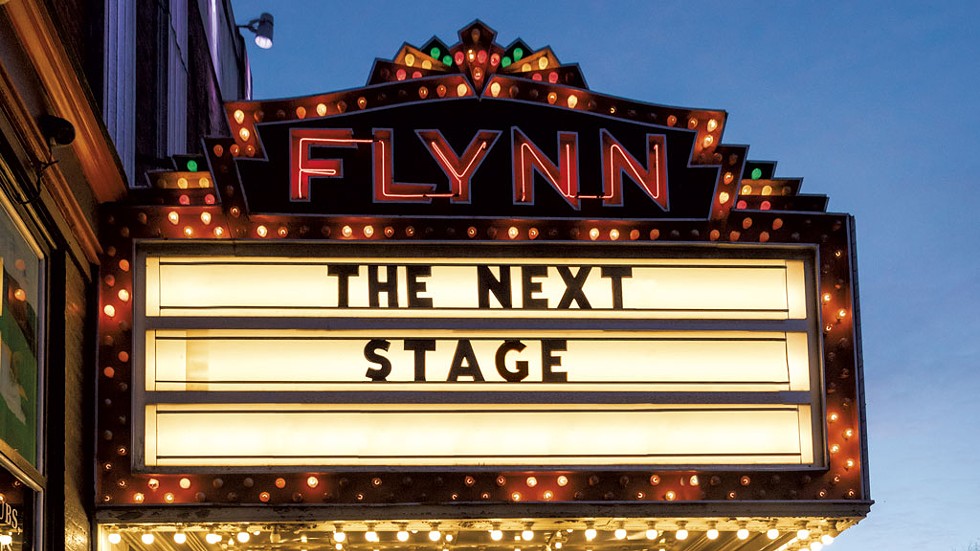

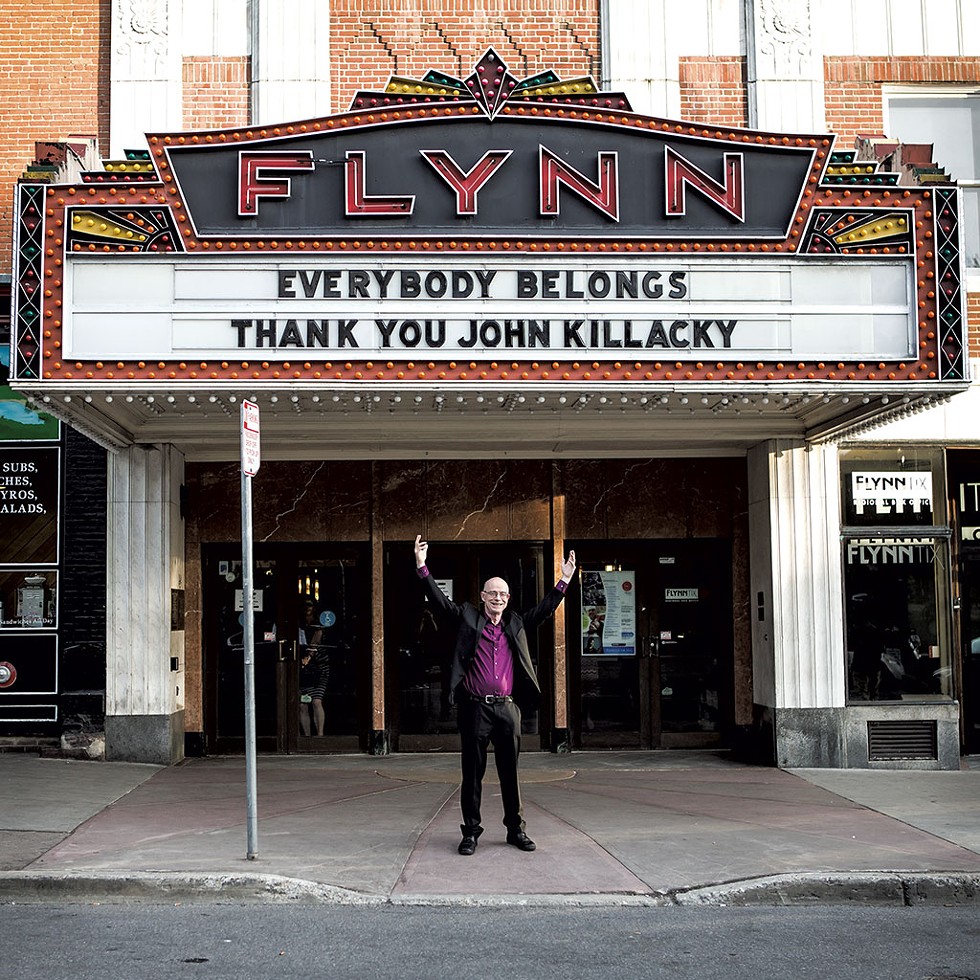
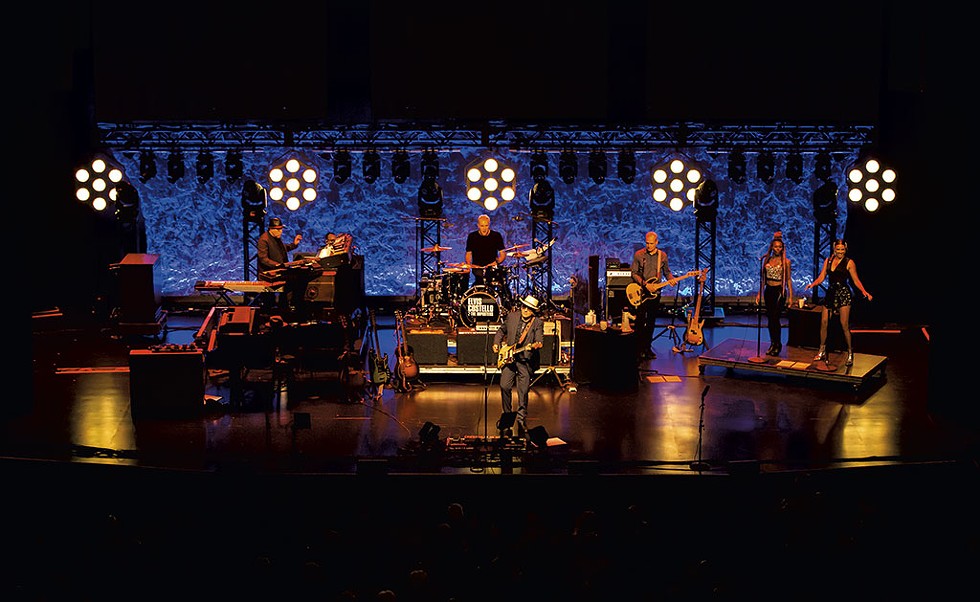
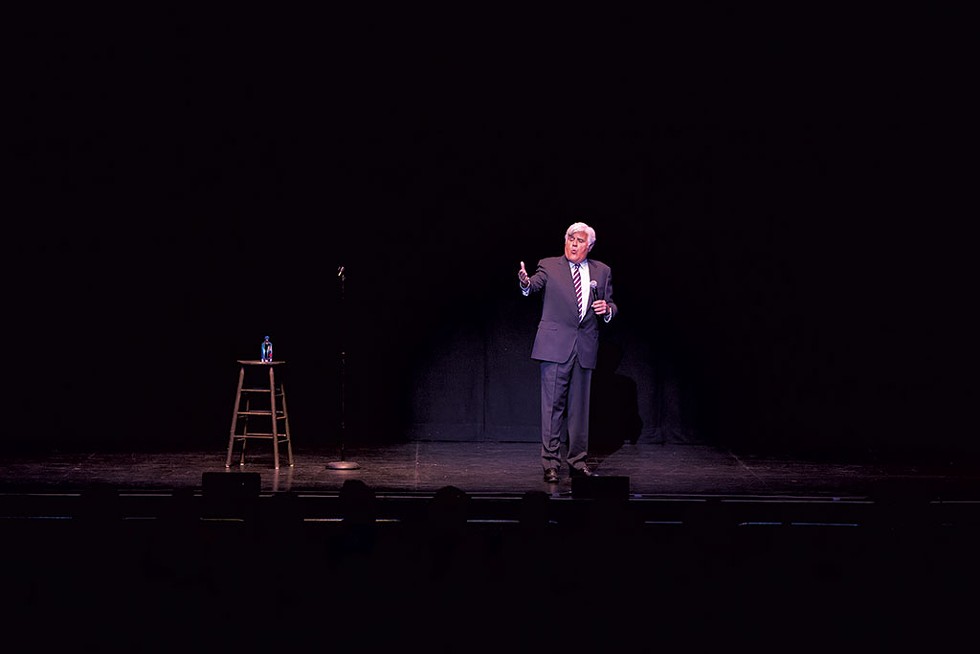
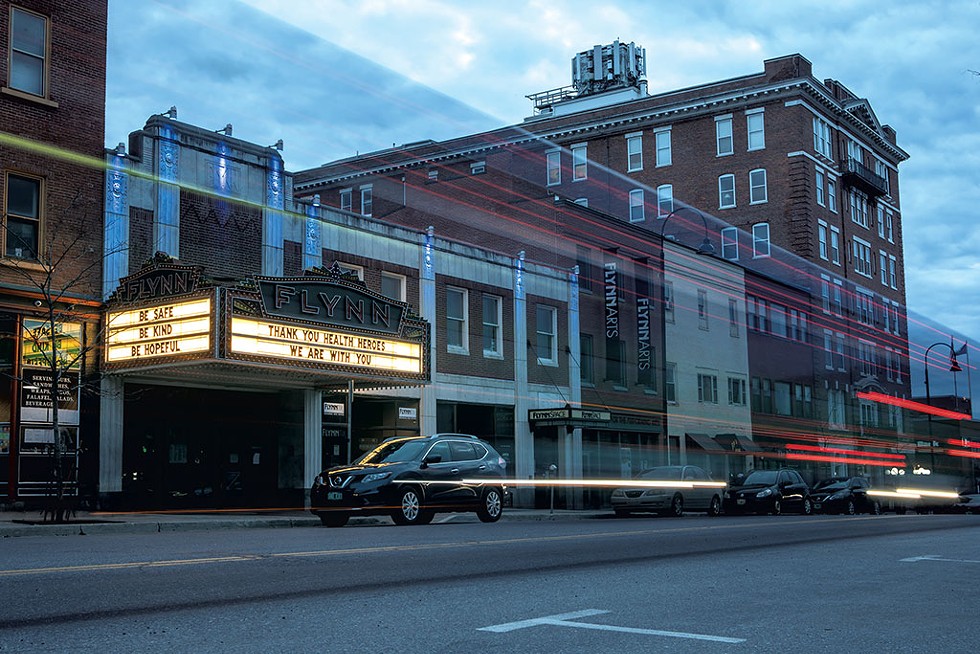
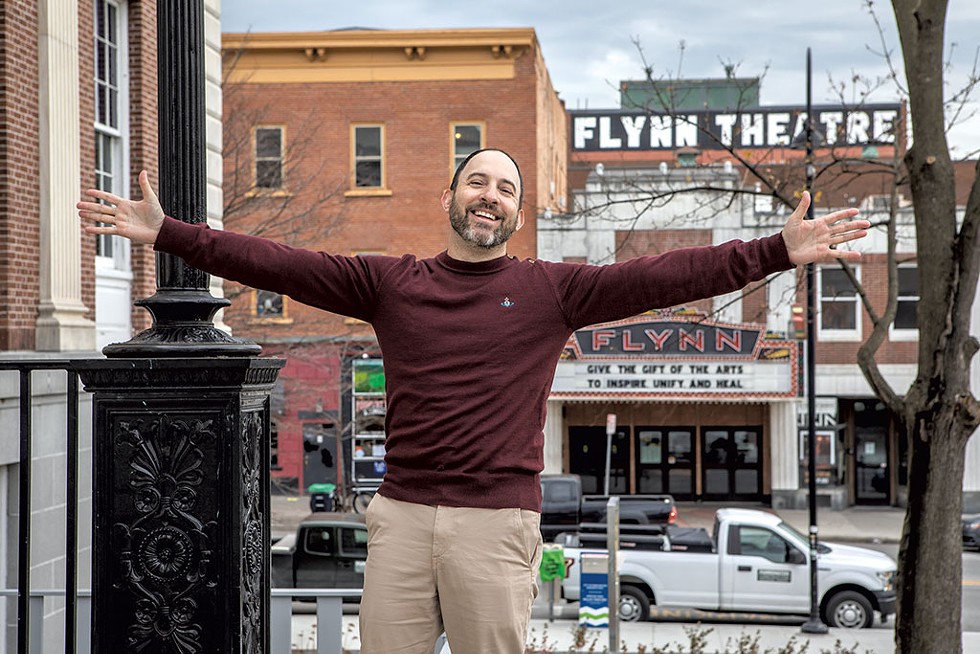

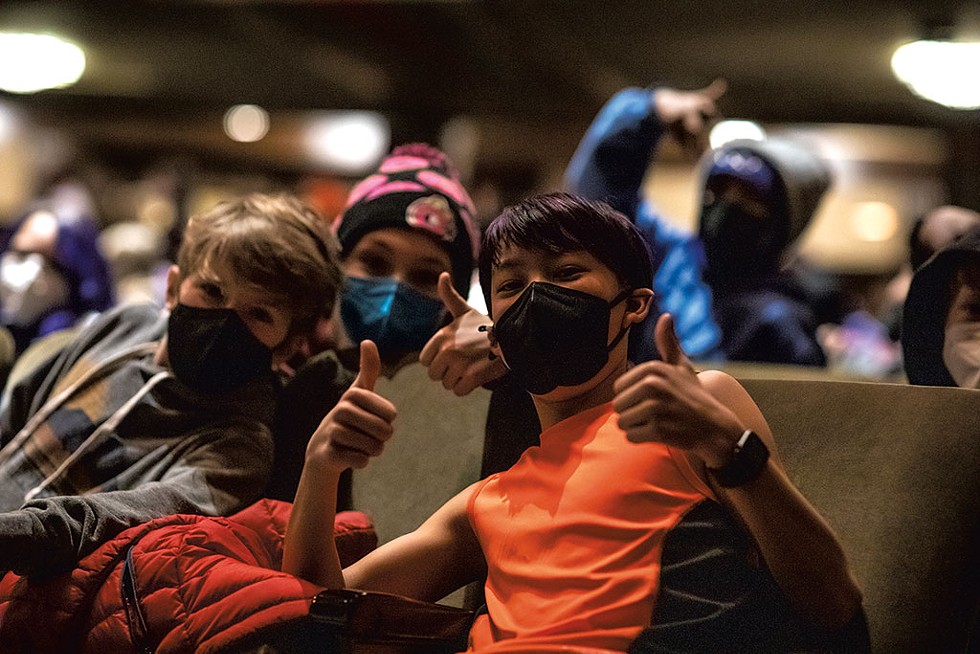
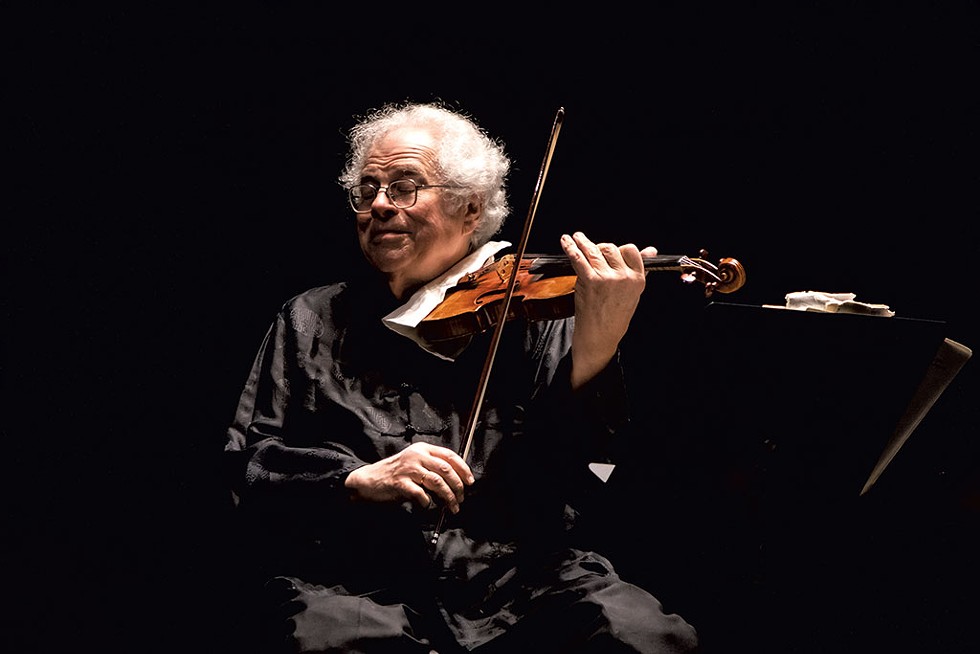




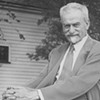

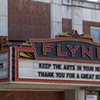









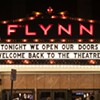


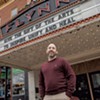


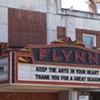




find, follow, fan us: